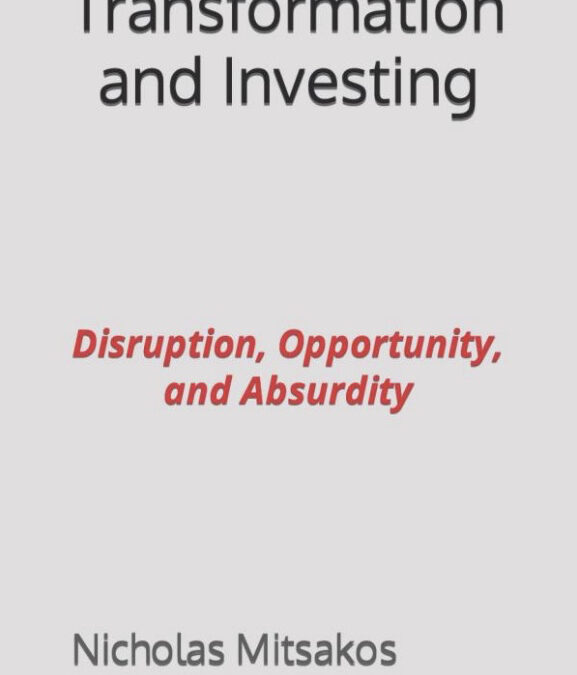
by Nicholas Mitsakos | Writing and Podcasts
Some of the world’s most important industries are being profoundly impacted by new technological innovations and platforms, such as artificial intelligence, digital assets, blockchain-based businesses, gene editing, and DNA sequencing, enabling unprecedented disruption to business and economic models.
Stable predictability is increasingly anachronistic. Every company or industry will either be a disrupter or disrupted. The leading growth companies of today stand an excellent chance to be memories tomorrow.
by Nicholas Mitsakos | Podcast, Writing and Podcasts
Some of the world’s most important industries are being profoundly impacted by new technological innovations and platforms, such as artificial intelligence, digital assets, blockchain-based businesses, gene editing, and DNA sequencing, enabling unprecedented disruption to business and economic models.
Stable predictability is increasingly anachronistic. Every company or industry will either be a disrupter or disrupted. The leading growth companies of today stand an excellent chance to be memories tomorrow.
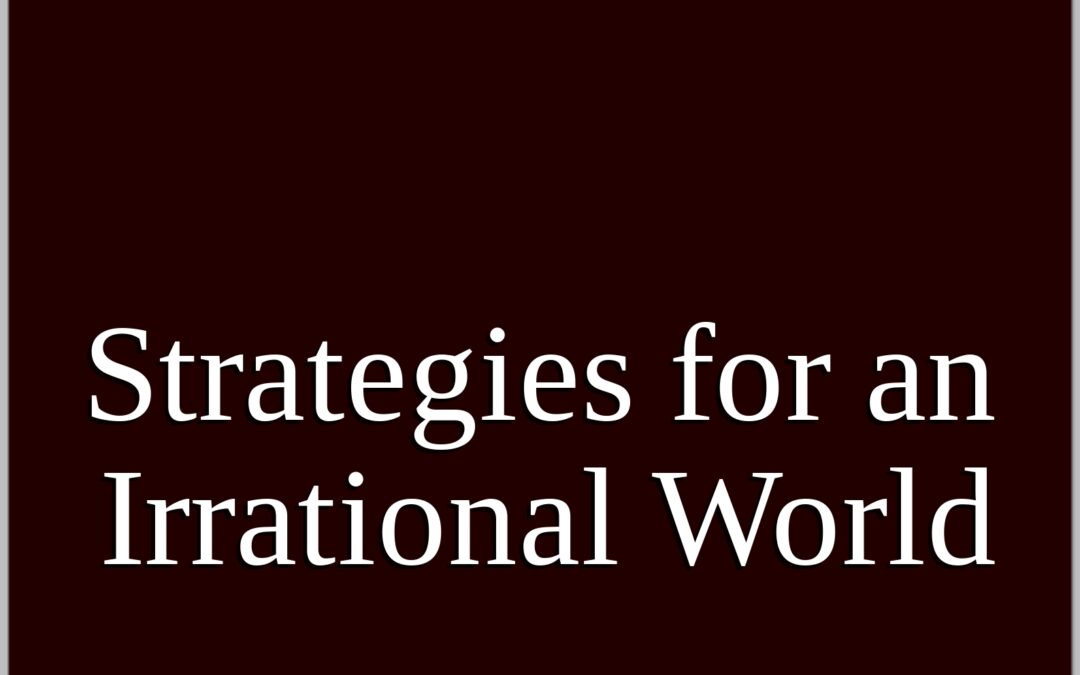
by Nicholas Mitsakos | Writing and Podcasts
Investment success combines predicting the future, the confidence to make bold choices, and the fortitude to stay with those choices. Today’s volatile and uncertain world requires new knowledge and perspective and assembling relevant facts from many diverse sources to make better decisions and achieve superior returns.
There is no simple formula. Thoughtful observation of complex factors, understanding their interrelation, and predicting the outcome of their interaction is challenging. Media-based quips are usually misguided, superficial, and potentially catastrophic.
by Nicholas Mitsakos | Podcast, Writing and Podcasts
Investment success combines predicting the future, the confidence to make bold choices, and the fortitude to stay with those choices. Today’s volatile and uncertain world requires new knowledge and perspective and assembling relevant facts from many diverse sources to make better decisions and achieve superior returns.
There is no simple formula. Thoughtful observation of complex factors, understanding their interrelation, and predicting the outcome of their interaction is challenging. Media-based quips are usually misguided, superficial, and potentially catastrophic.
by Nicholas Mitsakos | Book Chapter, Investment Principles, Investments, The Market, Writing and Podcasts
[iframe style=”border:none” src=”//html5-player.libsyn.com/embed/episode/id/22640267/height/100/width//thumbnail/yes/render-playlist/no/theme/custom/tdest_id/2730845/custom-color/3a8da9″ height=”100″ width=”100%”...
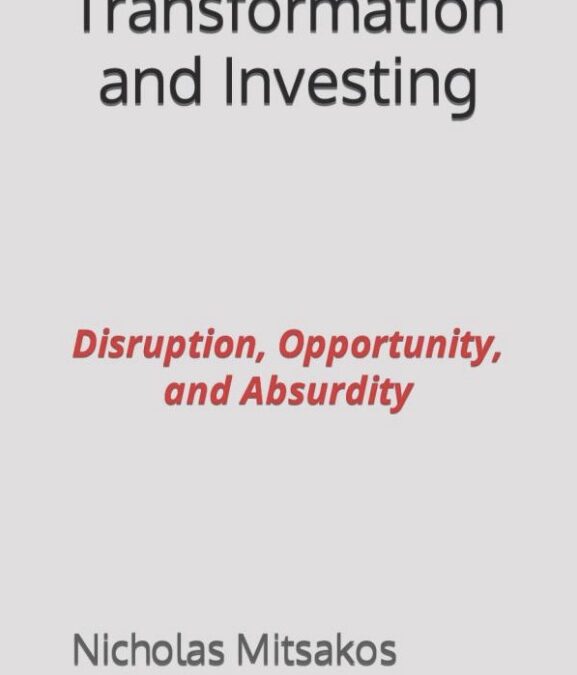
by Nicholas Mitsakos | Writing and Podcasts
Transformational Investing: Opportunity, Absurdity, and Terror highlights the extraordinary opportunities and risks associated with disruptive technologies and the global transformation they are causing. Instead of headline-grabbing hyperbole, I attempt to create a context to understand these developments – a broader, methodical, and disciplined way to think about disruption and transformation.
Some of the world’s most important industries are being profoundly impacted by new technological innovation and platforms, such as artificial intelligence, digital assets, blockchain-based businesses, gene editing, and DNA sequencing, enabling unprecedented disruption to business and economic models.
Investment success requires not only understanding these impacts but also grasping many other economic forces and elements ranging from global economics, game theory, competitive and microlevel analysis, as well as human behavior and emotions.
Stable predictability is increasingly anachronistic. Every company or industry will either be a disrupter or disrupted. The leading growth companies of today stand an excellent chance to be memories tomorrow.

by Nicholas Mitsakos | commodities, Economy, Public Policy, Writing and Podcasts
The average prices of food and fuel rose more than 16% in February from a year earlier and are expected to rise further by the war in Ukraine. Consumers are paying much more for meat, bread, milk, shelter, gas, and utilities. Only a small amount of food consumed in the U.S. is imported, and most of that is from Mexico and Canada. But Russia provides 15% of the world’s fertilizer and other agricultural chemicals that are now in short supply as planting season approaches. Wheat futures are up 29% since Feb. 25 and corn is up 15%. There is no shortage of wheat in the U.S., but global supply was the tightest in 14 years before the conflict, and dramatic shortages and price spikes are expected. What data is the Fed looking at, and how is it assessing inflationary risks? It’s hard to feel confident that the right hands are on the wheel because the combination of extraordinary factors, such as extremely tight labor markets and wage inflation (at over 6% annually and accelerating) showed inflation was already a significant risk. Yet interest rates were left unaltered. This is even before the crisis in Ukraine. The Fed should do whatever is necessary with interest rates to bring down inflation, including movements of more than a quarter-point, and a rapid reduction of its balance sheet. It also means recognizing that unemployment is likely to rise over the next couple of years. Paul Volcker would not have had to take extraordinary steps, driving the economy into a recession to crush runaway inflation, if his predecessors had not lost their focus on inflation. To avoid stagflation and the associated loss of public confidence in our economy today, the Fed has to do more than merely adjust its policy dials — it will have to head in a dramatically different direction.
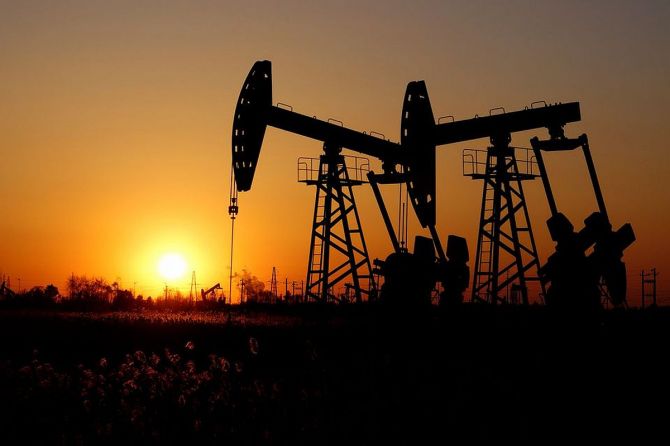
by Nicholas Mitsakos | China, commodities, Economy, Investments, The Market, Writing and Podcasts
Beyond 2022, higher interest rates and slower global growth most likely trigger a market correction, perhaps at an exorbitant cost. As discounts rates rise and growth assumptions lower, many stocks based assumptions that low interest rates and high growth would sustain for many years will see dramatic repricing and much lower valuations.
Energy and commodities, and the businesses associated with them, are in for a very bumpy ride, but there is a fundamental sustainability to their cash flow and long-term attractiveness as world supply reorders. That which is essential prevails.
The luxury of thinking we have halcyon days of global growth and geopolitical stability may not be with us for some time to come. It is perhaps time to plan for that now.

by Nicholas Mitsakos | Writing and Podcasts
Investment models that account for uncertainty, volatility, and failure succeed in the long term. Irrationality, not only in human behavior (with unfortunate, often tragic results) but market movements, investment volatility, and bewildering prices, is another certainty. “Mr. Market” as Benjamin Graham said, “is an irrational schizophrenic.” Investing as if he is not assures an investment strategy that will ultimately fail. Extrapolations from experience, or an attempt to exploit “transformational moments” quickly become meaningless as soon as new or unpredictable factors emerge – and new unpredictable factors always emerge. As we have seen lately, those factors can be almost anything, and it’s likely we didn’t see any of them coming; a market bubble bursting, a war, a pandemic…whatever. It will happen.
Markets are uncertain. A confident investment strategy based on singular predictive models work well for a short time, and perhaps most of the time, and that is their fundamental flaw. They will fail.

by Nicholas Mitsakos | Book Chapter, Investment Principles, Investments, Writing and Podcasts
Investment models that account for uncertainty, volatility, and failure succeed in the long term. Events in Ukraine, oil and natural gas markets, commodities, supply chain disruption, and spiking inflation highlight that, while none of these were predictable, all represent increasing uncertainty permeating all markets. The pandemic and war in Ukraine were unforeseen, but that’s just the point, unforeseen events will occur. It is a waste of time to try to predict the specifics, it is an essential investment strategy to manage risk to not only withstand but profit from “certain uncertainty.” Irrationality, not only in human behavior (with unfortunate, often tragic results) but market movements, investment volatility, and bewildering prices, is another certainty. “Mr. Market” as Benjamin Graham said, “is an irrational schizophrenic.” Investing as if he is not assures an investment strategy that will ultimately fail. An increasing number of growth and momentum investment funds are shutting down after sustaining significant losses recently, a sign of the severe pain the selloff in growth stocks is inflicting. More importantly, it signals an inability for investment funds to manage risk and understand that markets and investments do not move in a singular direction for long, and the correction is sudden and painful – regardless of how compelling “momentum” may seem. Risk management is the key to investment sustainability, but this seems to go ignored among most investment professionals. Frequent and extreme volatility is here to stay, and that is likely to decimate growth and momentum funds, as well as highly leveraged equity investment funds (from LTCM in 1998 to Archegos in 2021, the lesson is never learned for long – and there will be more examples to come). Clear and coherent markets, free from political agenda, bad compromises, and ineffective regulation are almost nonexistent. The consequences continue to be pyrotechnic.
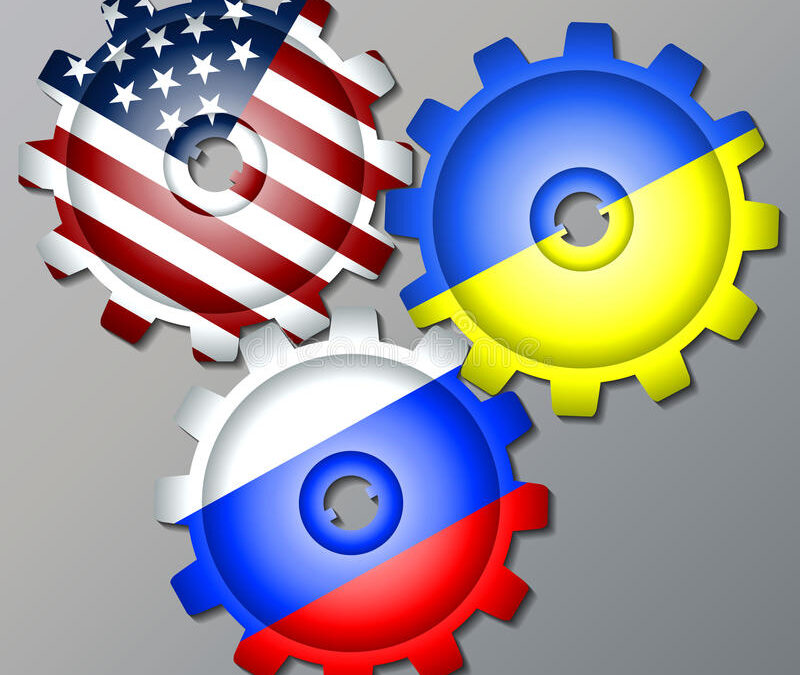
by Nicholas Mitsakos | China, Economy, Investment Principles, Investments, Public Policy, Writing and Podcasts
Collectively, the world is good at screaming about all sorts of immediate and looming crises, whether that is climate change, totalitarian governments abusing civilians and trampling on personal rights or outright genocide. A speech and a prayer suffice but we’re not going to do anything. Donation websites, lighting buildings in flag colors of abused nations, and sending hopes and prayers accomplish nothing. We send prayers. We just won’t answer them. The Ukraine war’s consequences are severalfold. Economically, global consequences may be slower and less spectacular than the dramatic Russian military invasion. But, the effects will permeate the global economy, and Russia will be the biggest long-term loser. While this does not comfort families suffering and dying in the streets of Ukrainian cities, it realigns global industries and economies, strengthens the West, and is likely to galvanize United States’ leadership in the global economy – setting up even more intense rivalry China. A big uncompromising response now is the most likely strategy to settle these dramatic issues – and if it leads to regime change in Russia, that helps everyone, especially the Russians. The US and the EU need to grow up and start acting like global leaders.
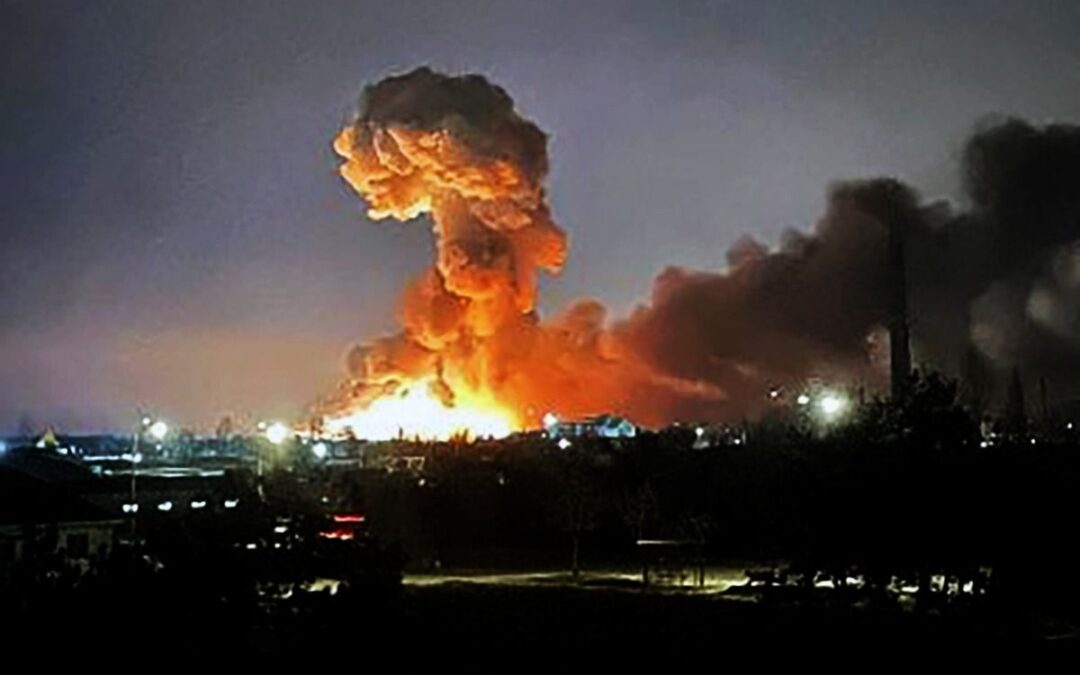
by Nicholas Mitsakos | Blog, The Market, Writing and Podcasts
The breadth of the economic and market impact will depend on what types of sanctions are applied by the West. It’s likely such measures would further target a combination of Russian banks, investment, and trade (such as through barring Russia from the cross-border SWIFT network), and potentially, energy. In response, Putin could also retaliate through the energy sector, as well as through cyberattacks on the United States and Europe. The situation is fluid to say the least.
I approach these things thinking like a chess player. What is my opponent’s to best move? What is my best move, or least worst move, in response? And so on… the whole board not only includes Ukraine, but also Estonia, Latvia, and Lithuania, as well as China and Taiwan. If the West is unwilling to do anything meaningful except give passionate speeches, that is definitely a cue for China to be more aggressive.









